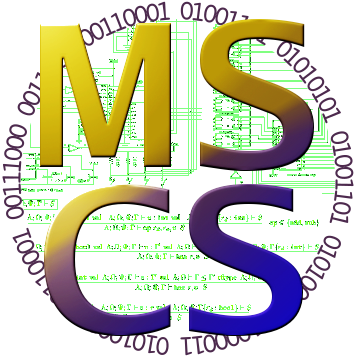
| Projects | 50% |
| Reading Quizzes | 10% |
| Midterm Exam | 20% |
| Final Exam | 20% |
Weekly reading quizzes will be offered automatically through D2L, and will generally consist of one or to problems taken from or motivated by the readings assigned for the following week.
Grades will be assigned using the standard 10-point formula: A
(90%), B (80%), C (70%), D (60%), etc.
At the instructor's
discretion, grades may be "curved" up; grades will not be curved
down.
Grades will be routinely posted in the gradebook on the course D2L site, as they become available.
Student attendance will not be explicitly tracked in this course, and will not directly impact student grades. However, students who routinely miss class discussions or lectures should expect to be unprepared to complete the assignments and exams upon which grades so heavily depend. In short, I don't bother with attendance bean-counting because students who cut class usually fail themselves out of the course before I would need to take any action. Make good decisions.
If you know you will be missing class for a legitimate reason, I appreciate a heads-up, but in accordance with Marquette University Attendance Policies, I neither require nor accept documented excuses. Please have a peer in the class take notes in your absence, and get any assignments in ahead of the deadline.
The size and structure of this course will not normally allow me to accept late work under any circumstances. There are enough opportunities for points in the course for most students to miss a few without severe consequences for their grades.
All students are expected to abide by Marquette University's Policy on Academic Integrity, and we will proceed under the assumption that everyone has committed themselves to the University's Honor Pledge:
I recognize the importance of personal integrity in all aspects of life and work. I commit myself to truthfulness, honor, and responsibility, by which I earn the respect of others. I support the development of good character, and commit myself to uphold the highest standards of academic integrity as an important aspect of personal integrity. My commitment obliges me to conduct myself according to the Marquette University Honor Code.
The Honor Code has particular implications for computer scientists and engineers, as well as computing professors, whose course work is so readily duplicated and shared in our modern digital world.
For my part, I will strive to ensure that your assignments and exams are engaging, challenging, and worth your investment in time and energy. For your part, I expect you will work hard, strive to learn, and present your work with honesty and integrity.
There will be many opportunities for you to collaborate with your peers in this course, and I strongly encourage you both to seek help when you are stuck, and to share your knowdledge with your peers when you have achieved understanding. Problems will only occur if you falsely claim work as your own when it is not, or collaborate when an exam or assignment has been specified to be individual work.
In the unlikely event of an academic integrity violation in this course, Marquette University's Procedures For Incidents of Academic Dishonesty will be closely followed.
| Week | Topics | Readings | Notes/Demos | Assignments |
| 01 | History, Layering, Ethernet and DHCP | Ch 1, 2, 13-13.2.2, 18.4-18.4.4 | HW #1: DHCP Sniffer | |
| 02 | Physical Layer, Line Coding | Ch 3,4 | HW #2: DHCP Client | |
| 03 | Analog Signals, Multiplexing, ARP | Ch 5, 6, 9 | HW #3: ARP | |
| 04 | Media, Error Correction, ICMP | Ch 7, 10, 19.1-19.2 | HW #4: ICMP | |
| 05 | Access Control, Ethernet | Ch 12, 13.2.3-13.6 | HW #5: IP | |
| 06 | Wireless, Hubs, Forwarding | Ch 15, 17, 18.4.5-18.6 | HW #6: Forwarding | |
| 07 | Mobile IP, Routing | Ch 19.3-19.4, 20 | HW #7: UDP | |
| 08 | UDP Midterm Break |
Ch 24.1-24.2 | Midterm Exam Break |
|
| 09 | Transport Layer | Ch 23 | HW #8: Chat Client/Server | |
| 10 | SCTP | Ch 24.4-24.6 | ||
| 11 | Sockets, Protocols | Ch 25, 26 | ||
| 12 | Multimedia, Peer-to-Peer | Ch 28, 29 | HW #9: TCP | |
| 13 | TCP Thanksgiving Break |
Ch 24.3 | Break | |
| 14 | Internet Security | Ch 31 | ||
| 15 | NAT, Firewalls | Ch 32 | ||
| (16) | Final Exam Week | Final Exam |